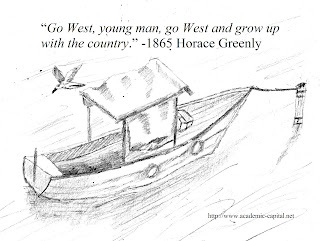Business and personal
communication are seen as some of the fundamental cornerstones of developing a
successful career. With proper communication it is possible to influence
people, understand people, and share your views with others. Through
communication we are able to understand and relate to each other in important ways
that further not only our interests but the interests of others. Research helps
colleges understand how current communication is being taught and the subject
matter of those courses.
According to Du-Babcock (2006), “Business communication has established
itself as an important subject area and has become an integral component of
business and school curricula” (p. 254). Since communication is so
important in life it has been adopted into university business curriculum and
continues to evolve. Through the development of student’s communication
abilities they are able to expand their horizons.
”The
limits of my language means the limits of my world.” -Ludwig Wittgenstein
As
a representation of life, the language we use determines how we see the world.
To communicate that effectively in a business setting means to influence the
perceptions and abilities of others. It provides future businessmen and businesswomen
opportunities to influence their environment in unique ways. Seeking to create
higher levels of communication is effective in everything from interpersonal
relationships to the selling of products.
The
teaching of communication is on a continuous growth pattern in universities. A
number of audits over the past 30 years have examined the evolutionary
pedagogical and programmatic developments of courses (Wardrope & Bayless,
1999). Modern courses may seek to include new forms of communication such as
texting and videoconferencing as well as older forms such as face-to-face and
formal letters.
The
study conducted by Russ (2009) surveyed 505 faculty members from 321 U.S.
colleges and universities to determine who the major departmental sponsors of
communication courses are, the level that introductory courses are taught, the
average size of the introductory course, the medium of such courses, the depth
of topics covered, and the types of assignments. The study’s findings are as
follows:
-The
study found that the most common curriculum in business schools was written
communication, public speaking, persuasive and ethical communication,
employment communication and mediated communication (email).
-The
least taught education communication included interpersonal communication,
mediated communication (text and video conferencing), and communication theory.
-The
business department has grown in terms of hosting communication courses.
-Juniors
and sophomores are the target of most introductory communication courses.
-The
majority of students were in larger classes (over 30 students).
-The
majority of teachers facilitate the courses in a traditional classroom setting
(73.5%), online (3%) and a hybrid format (23.6%).
Analysis:
A
vast majority of schools focus on traditional communication mediums which help
to prepare students for a wide variety of employment situations. In the future,
schools can consider the faster incorporation of new communication tools to
help students prepare for changing markets based upon emerging technologies.
Theoretical understandings of communications are not being taught at a
satisfactory level even though such understandings create a context for future
communication method incorporation. However, such theoretical understandings are
likely to be offered in graduate courses but should briefly be introduced in
later year undergraduate courses. The mechanical bases of communication are
heavier in freshman and sophomore years to foster the development of rudimentary
writing skills and higher levels of college academic performance.
Author:
Dr. Murad Abel
Du-Babcock,
B. (2006). Teaching business communication: Past, present, and future. Journal
of Business Communication, 43,
253-264.
Wardrope,
W. J., & Bayless, M. L. (1999). Content of the business communication
course: An
analysis
of the coverage. Business Communication
Quarterly, 62, 33-40.
Russ,
T. (2009). The Status of the business communication course at U.S. Colleges and
Universities.
Business Communication Quarterly, 72
(4).
